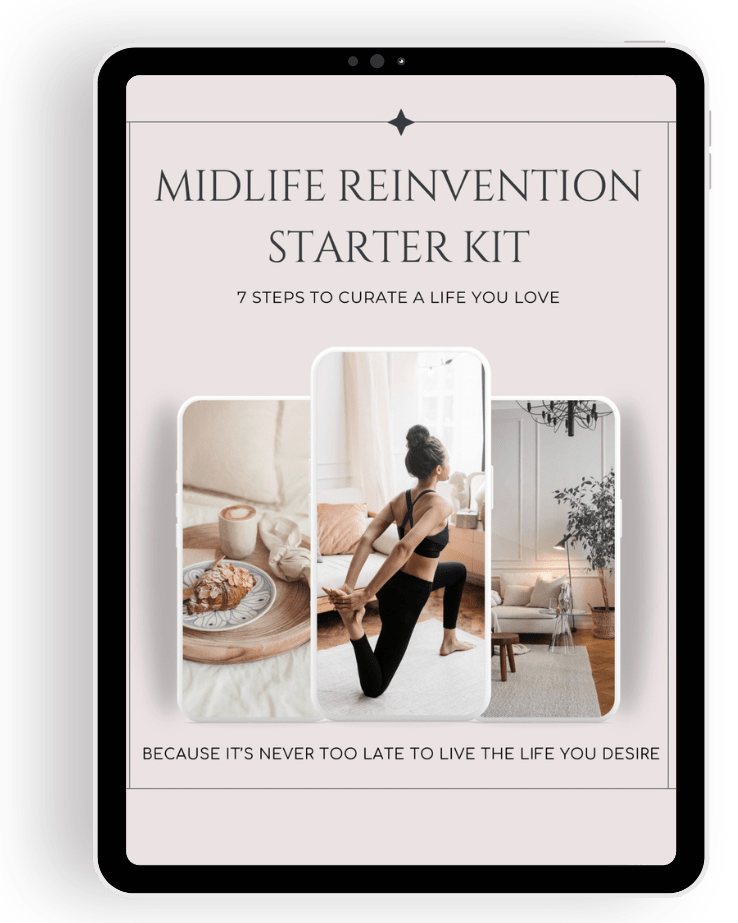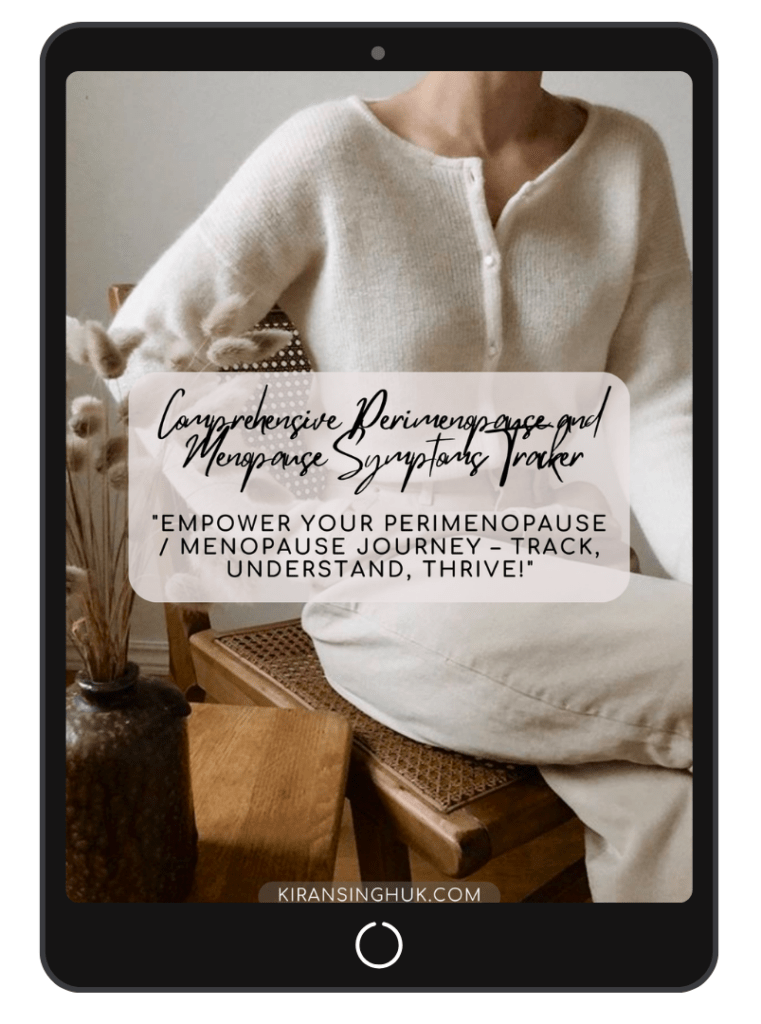Menopause is a time of profound hormonal shifts that affect nearly every aspect of a woman’s body – from skin elasticity and joint health to muscle mass and bone density. While menopause symptoms can be frustrating, nourishing your body with the right nutrients can significantly improve how you feel.
One powerhouse nutrient that plays a critical role in supporting the body during menopause is collagen. It is the most abundant protein in the human body and acts as the structural foundation for skin, joints, bones, muscles, and connective tissues. However, as oestrogen levels decline during menopause, collagen production naturally decreases by up to 30% in the first five years. This decline contributes to visible and physical changes such as wrinkles, sagging skin, brittle nails, joint stiffness, and weaker bones.
Fortunately, supplementing with high-quality collagen can help rebuild, restore, and strengthen these essential structures, making it a valuable addition to any menopause wellness routine.

The Science Behind Collagen and Menopause
Recent research has confirmed the benefits of collagen supplementation for midlife women:
- A 2021 study published in Nutrients found that daily collagen peptide supplementation significantly improved skin hydration, elasticity, and density in postmenopausal women.
- A 2022 clinical trial in The Journal of Clinical Nutrition reported that collagen peptides enhanced bone mineral density and reduced fracture risk in postmenopausal women with osteopenia.
- A 2023 review in Osteoarthritis and Cartilage highlighted that collagen supplements reduced joint stiffness and pain in women with menopause-related osteoarthritis.
These findings reinforce the idea that collagen isn’t just a beauty supplement – it is a crucial functional protein that supports overall menopausal health and longevity.
How Collagen Supports the Body During Menopause
1. Skin Health & Anti-Ageing
Declining oestrogen levels lead to thinner, drier, and less elastic skin. Collagen supplementation:
- ✔️ Boosts skin hydration and reduces fine lines and wrinkles.
- ✔️ Increases skin elasticity and firmness.
- ✔️ Supports wound healing and combats dryness.
🔹 Best Type: Hydrolysed collagen peptides (Type I) are most effective for skin health.
2. Joint Health & Osteoarthritis Relief
Collagen is a key component of cartilage, which cushions joints. Loss of collagen contributes to joint stiffness, pain, and inflammation, commonly seen in midlife. Collagen supplementation:
- ✔️ Supports joint mobility and flexibility.
- ✔️ Reduces joint pain and stiffness in osteoarthritis.
- ✔️ Helps regenerate cartilage and improve movement.
🔹 Best Type: Type II collagen is beneficial for joint health.
3. Muscle Strength & Protein Intake
Muscle loss (sarcopenia) accelerates after menopause, increasing fat gain and metabolic slowdown. Since collagen is a protein, supplementing with it:
- ✔️ Helps maintain lean muscle mass.
- ✔️ Supports muscle repair and recovery.
- ✔️ Enhances metabolism and energy levels.
🔹 Best Type: Hydrolysed bovine or marine collagen with added protein (e.g., whey or plant-based protein).

4. Bone Density & Osteoporosis Prevention
Postmenopausal women face an increased risk of osteoporosis due to declining oestrogen levels, which leads to bone loss. Collagen supplementation:
- ✔️ Improves bone mineral density, reducing fracture risk.
- ✔️ Strengthens the bone matrix, preventing weakness.
- ✔️ Works synergistically with calcium, magnesium, and vitamin D for bone health.
🔹 Best Type: Type I collagen, preferably combined with vitamin D and magnesium.
5. Hair & Nail Health
Many women experience hair thinning, slow growth, and brittle nails during menopause due to reduced collagen. Collagen supplementation:
- ✔️ Encourages thicker, stronger hair growth.
- ✔️ Strengthens nails, preventing breakage.
- ✔️ Boosts scalp health, reducing hair loss.
🔹 Best Type: Hydrolysed collagen peptides enriched with biotin, zinc, and vitamin C.
Choosing the Right Collagen Supplement
When selecting a collagen supplement, quality is key. Here’s what to look for:
- ✅ Hydrolysed Collagen Peptides – These are broken down for better absorption and effectiveness.
- ✅ Type I & III Collagen – Best for skin, bones, and muscles.
- ✅ Type II Collagen – Beneficial for joint health.
- ✅ Added Vitamin C – Essential for collagen synthesis in the body.
- ✅ Free from Fillers & Additives – Choose pure, high-quality collagen without artificial ingredients.
🔹 Recommended Sources:
- Bovine Collagen: Rich in Type I & III collagen, great for skin, bones, and muscles.
- Chicken Collagen: High in Type II collagen, ideal for joint health.
- Marine Collagen: High in Type I collagen, best for skin and anti-ageing benefits.

Beyond Collagen: Nourishing Your Body During Menopause
While collagen supplementation is incredibly beneficial, it works best when combined with a balanced lifestyle.
1. Prioritise Protein-Rich Foods
- Aim for 1g of protein per 1kg of body weight daily.
- Good sources: Chicken, fish, eggs, Greek yoghurt, tofu, lentils, and collagen peptides.
2. Boost Omega-3 Intake
- Eat oily fish (salmon, mackerel, sardines) 3–4 times per week.
- Add flaxseeds, walnuts, and olive oil for brain health and inflammation control.
3. Eat Antioxidant-Rich Fruits & Vegetables
- Focus on vitamins A, C, and E to protect against oxidative stress and ageing.
- Good sources: Berries, spinach, broccoli, citrus fruits, and peppers.

4. Support Gut Health
- Consume 30g of fibre daily from whole grains, legumes, and vegetables.
- Include probiotic foods (kefir, sauerkraut, live yoghurt) for hormonal balance.

5. Reduce Inflammatory Triggers
- ❌ Limit processed foods, sugar, caffeine, and alcohol to reduce hot flashes and mood swings.
- ❌ Avoid excessive snacking – instead, focus on three nutrient-dense meals daily.
The Role of Sleep in Menopause & Collagen Production
Poor sleep is a major concern during menopause, contributing to fatigue, irritability, weight gain, and skin ageing. Since collagen is produced during deep sleep, prioritising restorative sleep is essential.
Tips for Better Sleep:
- ✔️ Avoid caffeine and alcohol 4–6 hours before bed.
- ✔️ Create a relaxing bedtime routine (meditation, journaling, or deep breathing).
- ✔️ Keep your bedroom cool, dark, and quiet.

10 Frequently Asked Questions About Menopause and Collagen
1. How does collagen help during menopause?
Collagen supports skin elasticity, hydration, and firmness, helping to reduce wrinkles and dryness. It also plays a crucial role in joint health, bone density, and muscle maintenance—areas that often decline due to hormonal changes during menopause.
2. How long does it take for collagen to work, and when will I see results?
Most studies suggest that noticeable improvements in skin hydration and elasticity can appear within 4 to 8 weeks of daily collagen supplementation. For joint and bone health, it may take 12 to 24 weeks to see measurable benefits. Consistency is key to achieving the best results.
3. What type of collagen is best for menopausal women?
Type I and III hydrolysed collagen peptides (from bovine or marine sources) are the most effective for skin, hair, nails, bones, and joints. Marine collagen is often preferred for skin benefits, while bovine collagen supports both skin and joint health.
4. Can collagen help with menopause-related weight gain?
Collagen itself does not directly cause weight loss, but it supports muscle mass, which boosts metabolism. It also helps balance blood sugar levels, reducing cravings and energy crashes that can lead to weight gain during menopause.
5. Does collagen improve menopausal joint pain and stiffness?
Yes. Studies show that collagen peptides help reduce joint stiffness, pain, and inflammation, particularly in those with osteoarthritis or menopause-related cartilage loss. Regular supplementation can support mobility and comfort.
6. Can collagen prevent osteoporosis in menopause?
Collagen contributes to bone density and strength. Research indicates that collagen supplementation, combined with adequate calcium and vitamin D intake, can slow down bone loss and even improve bone mineral density in postmenopausal women.
7. Will collagen improve my skin and hair during menopause?
Yes. Collagen improves skin elasticity, hydrates, and reduces wrinkles. It also strengthens hair follicles, promoting thicker, healthier hair growth – especially when combined with biotin, zinc, and vitamin D.
8. How should I take collagen for the best results?
Collagen powders, capsules, or liquid forms are effective, but hydrolysed collagen peptides offer the best absorption. Take it daily, preferably with vitamin C (found in citrus fruits, berries, or supplements) to enhance collagen synthesis.
9. Are there any side effects of taking collagen?
Collagen is generally well-tolerated. However, some may experience mild digestive issues, such as bloating, if taken in high doses. Always choose a high-quality, pure collagen supplement without unnecessary additives for the best results.
10. Can I get enough collagen from food alone?
While bone broth, fish skin, and chicken skin contain collagen, dietary sources are not as effective as hydrolysed collagen supplements. However, consuming a diet rich in protein, vitamin C, and omega-3s will support your body’s natural collagen production.

Final Thoughts: Thriving Through Menopause
While menopause can feel overwhelming, nourishing your body with the right nutrients, prioritising movement, and managing stress can make a profound difference.
Collagen supplementation is a simple yet powerful way to support your skin, joints, bones, and overall vitality. Combined with a hormone-friendly diet, regular exercise, and quality sleep, you can feel strong, radiant, and confident at every stage of midlife.
Your Next Step:
💡 Try adding a high-quality collagen supplement to your daily routine for 8–12 weeks and track the benefits in your skin, energy, and overall well-being.

Feel free to sign up to my Friday Morning Love Note HERE! This isn’t just a newsletter - it’s your invitation to pause, reflect, and realign with you. Every week, we’ll journey together to uncover the small, meaningful shifts that will help you design a life that feels uniquely and beautifully yours. Each week, I’ll deliver fresh intentions, uplifting tips, and simple shifts to inspire purposeful, creative living.







